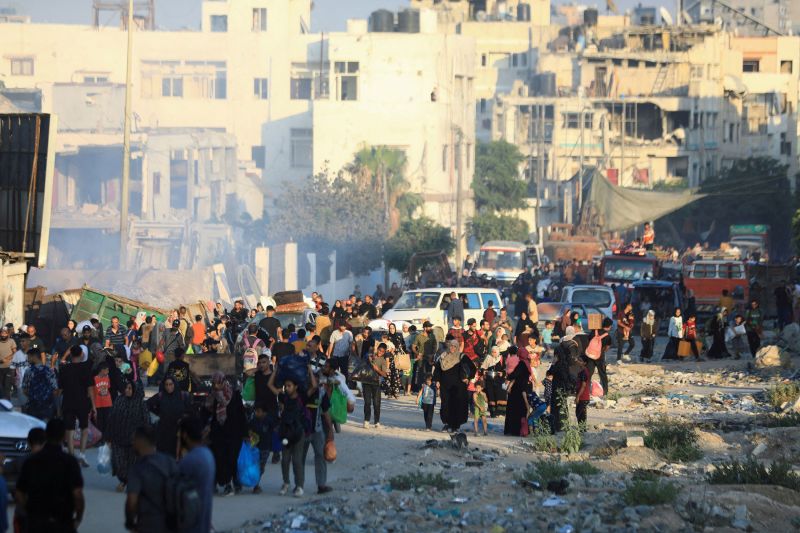United Nations agencies say that a new round of evacuation orders by the Israeli military in Gaza has prompted the largest displacements since October – making the delivery of emergency rations even more difficult than previously.
The World Food Programme said in a post on X Thursday: “Many distribution points have had to shut down. Only a few bakeries remain operational. We urgently need increased deliveries of food and greater capacity to deliver hot meals.”
A spate of evacuation orders issued by the Israel Defense Forces in late June and earlier this month increased the number of people displaced in Gaza from 1.7 million to 1.9 million, according to a UN assessment.
The WFP says it has provided more than 600,000 people in Gaza with food assistance this month, and more than 500,000 people with food parcels and wheat flour. But the agency also reported having to further cut rations in central and southern Gaza to ensure broader coverage for people who have been newly displaced.
“WFP still needs to deliver more fuel to the bakeries and other services, so they can provide emergency support to displaced families,” it said. “Basic commodities are available in markets in southern and central Gaza – but are unaffordable for many people – the shortage of commercial goods means food is sold at astronomical prices.”
On Wednesday, the UN Office for the Coordination of Humanitarian Affairs (OCHA) reported that the Israeli military had stopped all aid missions from going north of Wadi Gaza into central Gaza.
“This means humanitarian workers were unable to reach any of the hundreds of thousands of people in need. It also made it impossible for them to collect supplies from the northern entry point of Erez West,” it said.
Gaza’s health sector remains under great stress. According to the World Health Organization, 15 of Gaza’s 36 hospitals are partially functional, and 1,500 of the usual 3,500 hospital beds in Gaza are available – 600 of them in field hospitals.
Both the International Red Cross and the Gaza Health Ministry underlined the challenges to providing health care on Thursday.
“The ambulance and emergency system is no longer able to respond to all calls and missions to transport the wounded and injured,” the Health Ministry said because of a lack of ambulances, the arrest of paramedics by the IDF and a lack of gasoline.
The Health Ministry said that primary health care was affected by shortages of about 60% of basic medications, as well as damage to many health centers, especially in Khan Younis in the south.
It said infectious diseases continued to spread and had affected some 1.7 million people, and there was a shortage of blood units.
One of the field hospitals under pressure is run by the International Committee for the Red Cross in Rafah, which is at capacity after “repeated large-scale casualties,” the ICRC Said Thursday, noting that a Saturday attack in Al-Mawasi resulted in children requiring treatment for shrapnel wounds.
“The number of patients who had to be resuscitated after the large influx of injured on Saturday is inconceivable,” said the ICRC’s Dr. Pankaj Jhaldiyal.



























